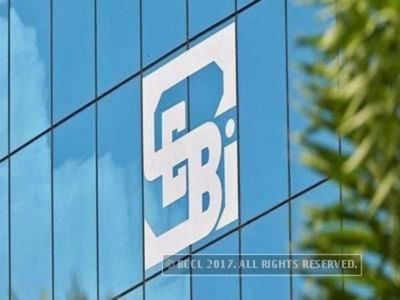- News
- Business News
- India Business News
- Sebi eyes unique ids for shares to tackle Karvy-type frauds
Trending
This story is from February 22, 2020
Sebi eyes unique ids for shares to tackle Karvy-type frauds
To prevent frauds like what happened at Karvy Stock Broking, markets regulator Sebi is considering a unique identity number for dematerialised shares that will establish a trail of ownership.

(File photo)
BENGALURU: To prevent frauds like what happened at Karvy Stock Broking, markets regulator Sebi is considering a unique identity number for dematerialised shares that will establish a trail of ownership.
Before the demat era, switching shares was not possible. As a share certificate changed hands, the transactions were recorded on the certificate itself. In dematerialised shares, transfers are documented, but the absence of a unique identity made it possible for Karvy to pledge clients’ shares, held in its account, as if they were its own.Both Sebi and the NSE are currently probing this fraud.
Karvy had pledged shares with Bajaj Finance, ICICI Bank, HDFC Bank, IndusInd Bank and others to raise funds. It owes Bajaj Finance as much as Rs 300 crore.
“In the physical era, every share had three numbers — certificate numbers and a distinctive number which were unique to that company share, and the folio number, which marked the ownership.
Sources said Sebi could look at employing decentralised ledgers like blockchain or hashgraphs for maintaining historical records of the unique ids for shares.
“After demat, shares — like currency — became untraceable. If unique certificate numbers had been in existence, Karvy could have never pledged its clients’ shares as its own without the banks noticing,” said the official. Of some 95,000 affected clients, Karvy returned securities of nearly 83,000 clients. Now lenders have appealed, claiming a lien on the shares.
Before the demat era, switching shares was not possible. As a share certificate changed hands, the transactions were recorded on the certificate itself. In dematerialised shares, transfers are documented, but the absence of a unique identity made it possible for Karvy to pledge clients’ shares, held in its account, as if they were its own.Both Sebi and the NSE are currently probing this fraud.
Karvy had pledged shares with Bajaj Finance, ICICI Bank, HDFC Bank, IndusInd Bank and others to raise funds. It owes Bajaj Finance as much as Rs 300 crore.
“In the physical era, every share had three numbers — certificate numbers and a distinctive number which were unique to that company share, and the folio number, which marked the ownership.
The new owner’s folio number would be recorded on the reverse of the certificate after every transaction,” said a Sebi official, aware of the discussions.
Sources said Sebi could look at employing decentralised ledgers like blockchain or hashgraphs for maintaining historical records of the unique ids for shares.
“After demat, shares — like currency — became untraceable. If unique certificate numbers had been in existence, Karvy could have never pledged its clients’ shares as its own without the banks noticing,” said the official. Of some 95,000 affected clients, Karvy returned securities of nearly 83,000 clients. Now lenders have appealed, claiming a lien on the shares.
End of Article
FOLLOW US ON SOCIAL MEDIA
















